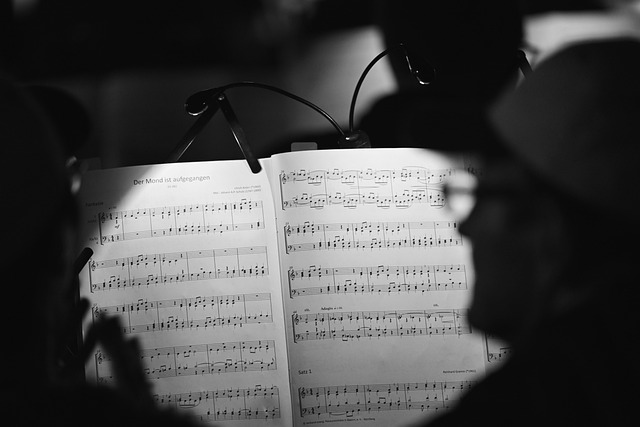https://aiode.com/product are revolutionizing music creation by offering advanced algorithms for generating, manipulating, and enhancing musical content. These tools complement human creativity, automating tasks, exploring new artistic directions, and optimizing workflows. Tools like Amper Music and AIVA empower musicians with high-quality composition capabilities, unlocking sonic possibilities and making production more accessible. Leveraging machine learning, AI analyzes datasets to provide insights into composition and rhythm, generating ideas and suggesting progressions. It also automates editing and noise reduction tasks. However, ethical implications such as authorship, ownership, originality, and plagiarism require careful consideration. As AI music tools evolve, they promise to democratize production, foster a diverse community, and revolutionize music discovery through personalized streaming experiences.
Dive into the exciting world of AI music tools, a revolutionary force transforming music creation. This blog serves as your comprehensive guide, offering insights for musicians and producers alike. From understanding the basics to exploring advanced applications, we unravel the power of AI in composition, production, and sound design. Discover top AI assistants, ethical considerations, and the future impact on the industry. Unleash your creativity with these game-changing ai music tools!
- Understanding AI Music Tools: A Beginner's Guide
- Top AI-Powered Composition Assistants for Musicians
- How AI Enhances Music Production Processes
- Exploring AI-Generated Sounds and Their Applications
- Ethical Considerations in Using AI for Music Creation
- The Future of Music Industry: AI's Role and Impact
Understanding AI Music Tools: A Beginner's Guide

AI music tools are transforming the way musicians and producers create, offering a vast array of capabilities that were once unimaginable. These tools use advanced algorithms to generate, manipulate, and enhance musical content, from composing melodies and harmonies to creating intricate soundscapes. For beginners, understanding the potential of AI music tools can be overwhelming, but it’s important to remember that they are designed to augment human creativity, not replace it.
At their core, AI music tools learn from vast datasets of existing music, allowing them to produce new sounds and styles based on these patterns. Whether you’re looking to automate repetitive tasks like loop generation or explore more creative areas such as generating lyrics, these tools offer a range of applications. By familiarizing yourself with the basics—like how to input prompts for specific musical outcomes—you can start leveraging AI music tools to expand your artistic horizons and streamline your workflow.
Top AI-Powered Composition Assistants for Musicians

In today’s digital era, AI music tools have emerged as game-changers for musicians and music producers, revolutionizing the way they create and compose. These cutting-edge artificial intelligence (AI) composition assistants offer a myriad of benefits, from generating melodic ideas to structuring entire arrangements. One such tool, Amper Music, allows users to craft unique soundtracks in minutes, saving time and effort while ensuring high-quality outcomes. Another popular option is AIVA (Artificial Intelligence Virtual Artist), which has composed music for numerous films and ads, showcasing its versatility and creativity.
For musicians looking to explore new sonic territories, these AI assistants provide a vast library of customizable options. Whether it’s generating chord progressions, suggesting melodies, or even composing entire songs, these tools empower creators with endless possibilities. By leveraging the power of AI, musicians can break free from conventional composition methods and unlock their creativity, making music production more accessible and exciting than ever before.
How AI Enhances Music Production Processes

AI music tools are revolutionizing the way musicians and producers create and refine their art. By leveraging machine learning algorithms, these tools can analyze vast musical datasets to offer insights into composition, harmony, and rhythm. They can generate melodic ideas, suggest chord progressions, and even compose entire tracks based on user input and preferences. This not only speeds up production times but also opens doors to creative possibilities previously inaccessible.
Furthermore, AI enhances music production by automating repetitive tasks like audio editing and noise reduction. It can identify and isolate specific elements within a mix, allowing for precise adjustments and enhancements. With its ability to learn from vast libraries of music, AI tools can provide personalized recommendations and feedback, fostering continuous learning and improvement for musicians and producers alike.
Exploring AI-Generated Sounds and Their Applications

In recent years, the landscape of music creation has been significantly reshaped by advancements in AI music tools. These tools offer musicians and producers a vast array of possibilities, from generating unique sounds to enhancing creative workflows. Exploring AI-generated sounds allows artists to break free from conventional composition methods, pushing boundaries and fostering innovation. With the ability to learn from existing musical data, AI algorithms can create novel melodies, harmonies, and even entire compositions that resonate with listeners in new and exciting ways.
The applications of AI music tools are vast and varied. They can be used to compose soundtracks for films and games, generate ambient textures for immersive experiences, or even assist in music restoration projects. By automating repetitive tasks and offering intuitive interfaces, these tools empower musicians to focus on their creative vision. Additionally, AI-generated content can democratize music production by making high-quality sound design accessible to a broader audience, regardless of technical expertise.
Ethical Considerations in Using AI for Music Creation

As AI music tools gain popularity, musicians and producers must navigate a new landscape of creative possibilities while also considering ethical implications. One key concern is authorship and ownership; when AI algorithms generate music, who owns the rights to that creation? Ensuring proper attribution and recognizing the contributions of both human creators and AI systems is essential for maintaining transparency and fairness in the music industry.
Additionally, issues of originality and plagiarism arise with AI-generated content. Musicians need to be mindful of how these tools can inadvertently reproduce or mimic existing musical works, potentially leading to copyright infringement. Striking a balance between leveraging AI’s innovative capabilities and preserving artistic integrity is crucial for the sustainable development and acceptance of AI music tools within the creative community.
The Future of Music Industry: AI's Role and Impact

The future of the music industry is being reshaped by artificial intelligence (AI) music tools, offering unprecedented opportunities for musicians and producers. AI has already made significant inroads into various aspects of music creation, from composition and arrangement to mastering and mixing. These tools can analyze vast datasets to generate unique musical patterns, assist in creating complex harmonies, and even mimic the styles of renowned artists. The impact is profound: musicians can collaborate with AI to explore new creative territories, streamline their workflows, and access a wealth of sonic possibilities.
As AI music tools continue to evolve, they have the potential to democratize music production by lowering barriers to entry, enabling more individuals to create high-quality music. This shift could foster a diverse and vibrant musical landscape where artists from all backgrounds can contribute and thrive. Furthermore, AI’s role in music discovery and personalization may revolutionize streaming services, offering tailored experiences that resonate with individual listeners.
In conclusion, AI music tools are transforming the way musicians create and produce. From composition assistants to enhanced production processes, these tools offer a wealth of knowledge and innovative capabilities. As we explore the diverse applications of AI-generated sounds and navigate the ethical considerations, it’s clear that AI is here to stay and will play an increasingly significant role in shaping the future of the music industry. Embrace the potential of AI music tools to unlock new creative frontiers.
